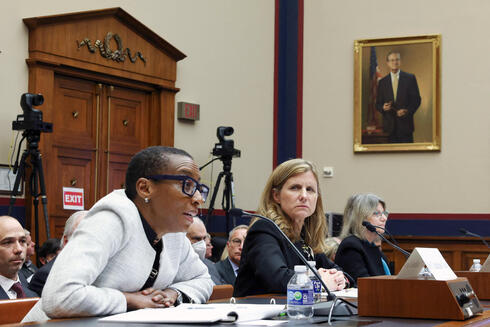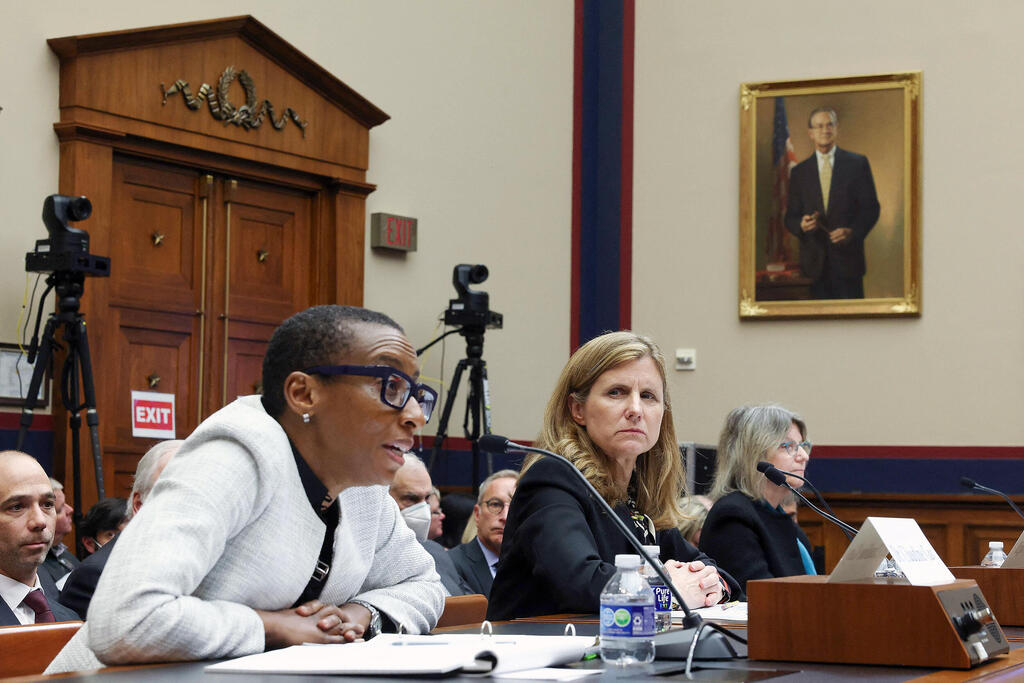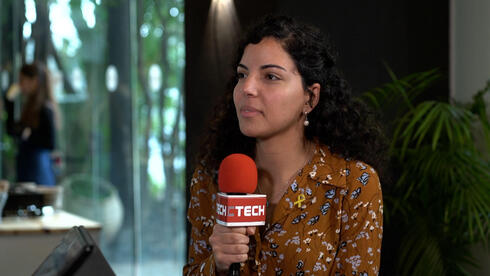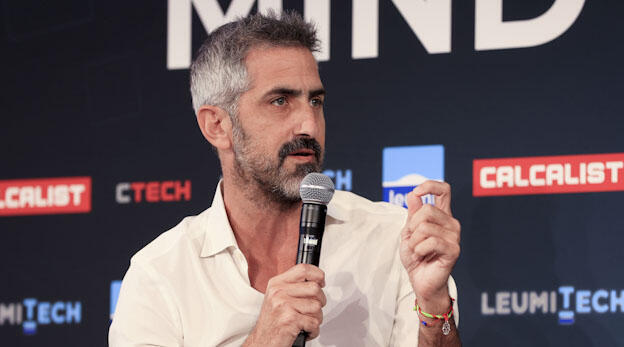
The ousting of Ivy League presidents treats symptom of antisemitism but not disease
While necessary, the resignation of Penn president Liz Magill will be seen as a capitulation to rich and powerful donors and reinforce antisemitic stereotypes. More difficult will be addressing the deep-seeded antisemitism at these institutions.
The symptom was treated but the disease persists. This summarizes the episode of Liz Magill's resignation as the President of the University of Pennsylvania (Penn). Magill submitted her resignation letter without specifying the reasons for it. Shortly after, Chair of the Board of Trustees Scott Bok resigned. Julie Platt, the vice chair, has been temporarily appointed as the interim chair. Platt is also the chair of the Board of Trustees of the Jewish Federations of North America. Later Monday, a board meeting at Harvard University expected to discuss whether President Claudine Gay would face a similar fate.
1 View gallery


Claudine Gay and Liz Magill at the congressional hearing.
(Credit: Kevin Dietsch/AFP)
Senior Penn officials were the first to pay the price for their inability to confront the deep-rooted antisemitism on American campuses. They did not do so willingly. The recent congressional hearing in which university presidents of Harvard, Penn and MIT refused to acknowledge that calls for genocide against Jews constituted harassment or bullying exposed the depth of the problem and there was no question that there would be fallout.
The university presidents themselves realized that, despite the legal advice they received (likely from the same team of lawyers, as their statements sound so similar), an astonishing truth was revealed: detailed regulations and policy prohibiting any form of discriminatory behavior based on race or gender failed to include calls for the murder of Jews as a form of harassment. As articulated by the leadership of Penn, Harvard, and MIT, based on the code of conduct at the three most prestigious institutions, from which a large part of the current leadership in the United States has emerged and future generations will continue to attend, as long as there is no direct physical harm to Jews, calls for violence against them is not considered harassment. A few hours after their testimony, Magill and Gay attempted to rectify the situation, but it was too late.
Though the change in leadership at universities is an expected and necessary action, it is not sufficient to address the core issue. If anything, it may exacerbate the problem. The same progressive academia that divides the world into the weak and the strong, oppressors and oppressed, will interpret the dismissals as further proof of the righteousness of their paradigm. For them, the dismissals are not a sign of a willingness to address the problematic perceptions that have developed on campuses, but rather capitulation to wealthy and powerful donors who demanded the heads of the university presidents before committing additional funds. In the case of Pennsylvania, it was a cause-and-effect situation that does not even require an advanced research methods course: last Friday, businessman Russ Stevens threatened to withdraw a promised donation of $100 million if the president was not removed.
Changing leadership at universities is easy; more difficult is eradicating antisemitic views which have become near transparent and self-evident. Until now, it was perhaps more convenient to ignore such views as long as they were confined to the humanities and social sciences faculties. Even Sam Altman, the founder of OpenAI that introduced ChatGPT to the world, struggled to remain neutral. "for a long time I said that antisemitism, particularly on the American left, was not as bad as people claimed," he tweeted on Friday, "i'd like to just state that i was totally wrong. i still don't understand it, really. or know what to do about it. but it is so fucked." The last part of his statement is accurate and frustrating at the same time: if one of the brightest minds in the world cannot figure out how to solve the problem of antisemitism, then university presidents are facing an inordinately complex job ahead of them.













